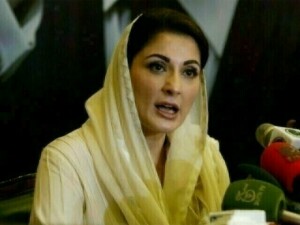On a mission to reduce plastic waste, the Dubai Can initiative features, among other things, water stations installed in busy areas like parks, beach and malls to encourage individuals to use refillable water bottles instead of plastic ones. The city is now going to come down hard on plastic bags as well.
Some 40 water stations have already been set up, with a plan of hitting 50 by year-end. The idea is to “create a culture of conscious living by driving awareness on plastic alternatives and sustainability issues” and contribute to the UN’s Sustainable Development Goals (SDG).
Companies like Dell, Emaar, Nakheel and Talabat have also voluntarily adopted Dubai Can’s strategy, which includes installing water filters or bottle-free dispensers at offices, encouraging staff to use refillable water containers and using official social media and marketing channels to spread awareness on the issue.
5-year tourist, job exploration visas: UAE offers more options, eases requirements
They are also asked to keep track of what impact their efforts are making, such as how much CO2 emissions have been reduced — all part of the broader purpose of making efforts towards climate change.
“Everyone can be a part of Dubai Can and this citywide movement to protect the environment,” said a spokesperson for the initiative.
And the need is dire: 8.3 billion tons of plastic were produced in the UAE in 2019 and every UAE resident is estimated to be using 450 plastic water bottles on an average every year, leading to yearly consumption of more than 4 billion plastic bottles.
Reportedly, the programme has been able to prevent at least one quarter of a million bottles from ending up in the landfill.
Going forward, Dubai will also introduce a charge for single-use plastic bags from July 1 with the hope of banning them completely in two years. But while Dubai moves its way towards tangible goals, and outcomes, Pakistan has lagged behind. Pakistan, also committed to the UN SDGs, has tried to ban plastic bags but this has not been implemented in any real way. Hania Imran, an 18-year-old Pakistani climate activist, says the plastic pollution crisis in the country is a huge issue. “In this country, 3.9 million tonnes of plastic was created in 2020 alone. 70% of this was not recycled,” Imran told Business Recorder.
Dubai plans to introduce self-driving and flying taxis by 2030: official
“Plastic is in what we eat and what we breathe. We all have micro plastic particles inside of us. They even exist inside unborn babies, the long-term effects of which are still unknown. It’s literally killing us.”
Another climate activist, Noor ul Huda Daudpota, who calls herself a climate communicator and lives a “low waste life”, said: “Every minute, we our throwing a garbage truck worth of plastic in the ocean – it will take us 50- 60 years to fix the problem if we do something about single-use plastic now.
“We inhale a credit card worth of micro plastic every week.”
While lauding Dubai’s efforts, Imran said Pakistan can follow suit, but any initiative has to be consistent.
Giving the example of plastic bags being banned in Islamabad, she said for a while they disappeared in the capital, and people began using reusable bags.
But now, “plastic bags are very much back”. It’s worth noting Pakistan is estimated to use 55bn to 112bn plastic bags each year.
Cloud kitchens are booming in Dubai but Pakistan is looking to catch u
“We need the government and corporations to step up and take action, just like Dubai. Pakistan can take similar actions — it just needs to be consistent and engage the society, and the youth. “Together, we can come up with solutions and you will see the change,” said Imran, who said she wants to become a part of the National Assembly to bring about “real change”.
Hitting out at the private sector, though, Imran said: “Companies that create plastic say its okay to continue doing so because its being recycled but the truth is the majority of plastic is not being recycled.
“It is a very difficult thing to do. We need sustainable solutions.”
Meanwhile, Daudpota said recycling is not the answer.
“It’s to stop using single use plastic altogether. It’s the only way we can deal with this problem.”
She explained that when plastic is recycled its quality is downgraded, which means virgin plastic has to be added to it. So any recycled product actually only has about 30% recycled plastic, while the remaining is virgin plastic.
On top of that, she said the carbon emission of recycling plastic is also very high.
Daudpota thinks there are no campaigns in Pakistan making a real difference and hopes to see programs similar to Dubai Can in the country’s schools and offices.
While the private sector in Pakistan has taken some steps, more is needed, say activists. Last year, Coca-Cola worked with the Capital Development Authority and the National Incubation Center to create Pakistan’s first plastic road in Islamabad. This road utilised about 10 tonnes of plastic bottles collected. The idea was to create a scalable solution for plastic that can serve as a model for nation-wide practice.
Aquafina, owned by Coke rival Pepsico, introduced the country’s first ‘reverse vending machine’ – people deposit plastic bottles and get Rs100 worth of KFC vouchers per bottle in return.
Last year, PepsiCo and plastic manufacturer Novatex signed a Memorandum of Understanding to work together on scaling up the collection of using plastic bottles in Pakistan and commercialising the use of bottles made from recycled plastics. But is this enough? Imran thinks companies “need to do more and need to do better” and every citizen must hold them accountable, before “we run out of time”.
“Plastic is not going anywhere, and we should not stop talking about it,” she said.
Copyright Business Recorder, 2022





















Comments
Comments are closed.